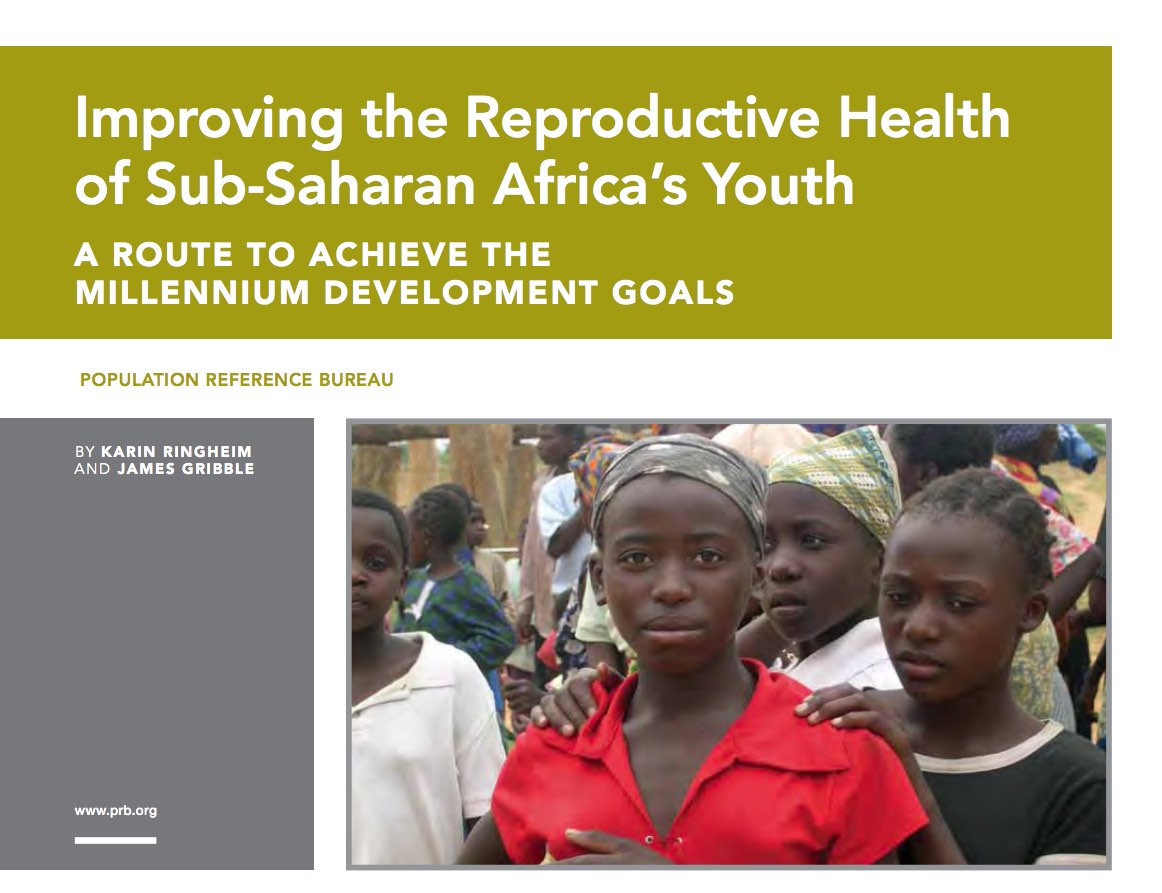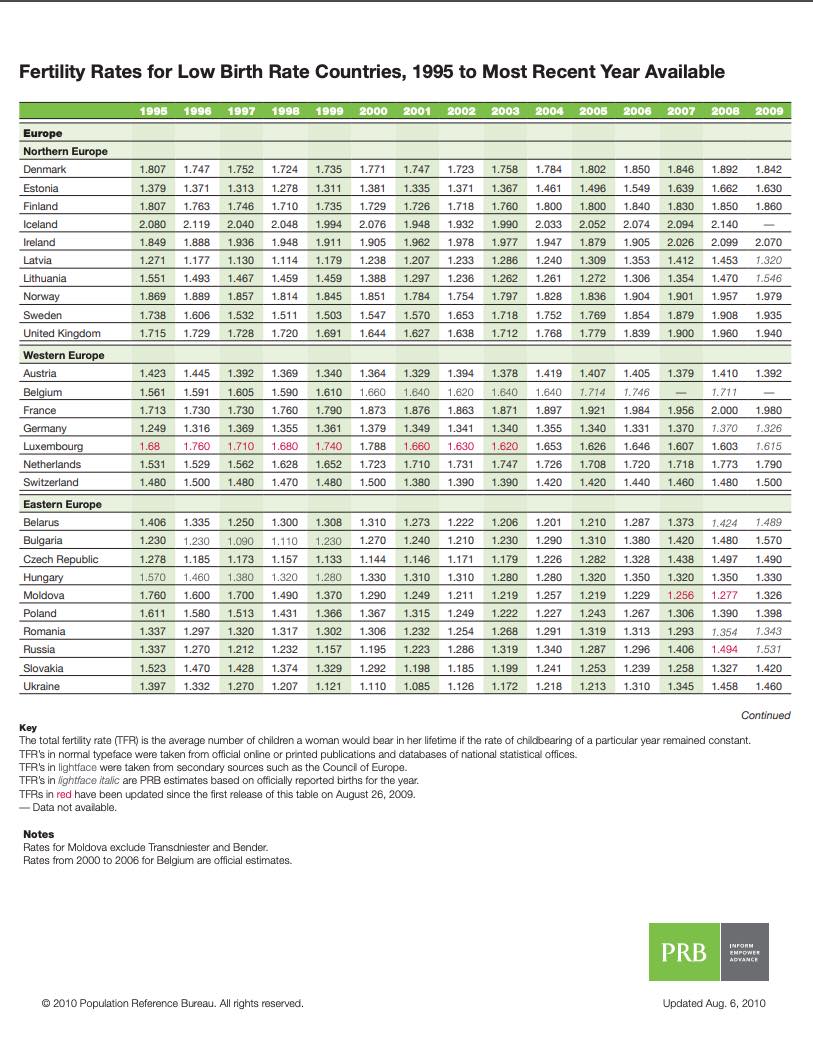Japan’s Demographic Future
(2010) The phrase "1.57 Shock" was widely used in Japan 20 years ago in reaction to the lowest fertility rate in the country's history.
(2010) The phrase "1.57 Shock" was widely used in Japan 20 years ago in reaction to the lowest fertility rate in the country's history.

(2010) Unintended pregnancies are widespread in the Middle East and North Africa (MENA), jeopardizing the health and well-being of women and their families.1 These unplanned pregnancies also exert an unnecessary burden on their countries' health systems and socioeconomic development.
Many women in developing countries, too poor to pay for the reproductive health services they need, use vouchers to defray the cost of care.

(2010) Unintended pregnancies are widespread in the Middle East and North Africa (MENA), jeopardizing the health and well-being of women and their families.1 These unplanned pregnancies also exert an unnecessary burden on their countries' health systems and socioeconomic development.

(2003) Depuis 1979, début des gaige kaifang (réforme et ouverture), la Chine a pris le chemin de son intégration dans le système économique mondial, les investissements étrangers sur son territoire et l'exportation de ses produits dans le monde entier.

(2010) More than 1.4 billion people around the world live in extreme poverty (defined as income of less than US$1.25 per day), and nearly 2 billion more live just above that level.
Even before the massive earthquake in January 2010, Haiti's nearly 10 million people ranked as the poorest in the Western Hemisphere.
(2008) Each year, nearly 10 million children die, mostly from preventable and treatable causes. Millions of children in low-income countries suffer from long-term illnesses, malnutrition, and injuries that limit their life options. What can we do to improve children's health and save lives in low-income countries? What are the links to mother's health?